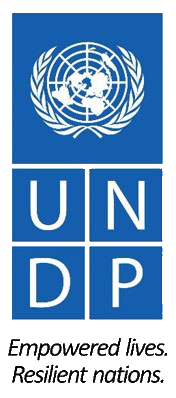
United Nations Development Programme (UNDP)
Programme des Nations Unies pour le développement (PNUD)
Programa de las Naciones Unidas para el Desarrollo (PNUD)
Entwicklungsprogramm der Vereinten Nationen
Search Open Yearbook
This information is part of the Open Yearbook, a free service of UIA's subscription-based Yearbook of International Organizations (YBIO). It includes profiles of non-profit organizations working worldwide in all fields of activity. The information contained in the profiles and search functionality of this free service are limited.
The full-featured Yearbook of International Organizations (YBIO) includes over 72,500 organization profiles, additional information in the profiles, sophisticated search functionality and data export. For more information about YBIO, please click here or contact us.
The UIA is a leading provider of information about international non-profit organizations. The aim of the Open Yearbook is to promote the activities of international non-governmental organizations (INGOs) and intergovernmental organizations (IGOs).
Contact Details
URL: http://www.undp.org/
Facebook: https://www.facebook.com/UNDP/
LinkedIn: https://www.linkedin.com/company/undp/
Twitter: https://twitter.com/undp/
Founded
1965-11
History
Established pursuant to resolution 1020 (XXXVII) of E-XE3377 - ECOSOC, approved by the General Assembly in resolution 2029 (XX).
Set up by merger of United Nations Expanded Programme of Technical Assistance (EPTA) -- Programme élargi d'assistance technique des Nations Unies -- Programa Ampliado de Asistencia Técnica de las Naciones Unidas and of H-XH0595 - United Nations Special Fund - note that this is not the same as the later H-XF0029 - United Nations Special Fund, 1974 (UNSF).
The Governing Council, originally consisting of 37 members, was increased to 48 members by General Assembly resolution 2813 (XXVI) of 14 Dec 1971 and replaced by a 36-member Executive Board in 1994.
UNDP is an organ of A-XA3375 - United Nations (UN) within the framework of F-XF1000 - United Nations System, linked to the General Assembly and to ECOSOC.
Aims
Work to eradicate poverty while protecting the planet; help countries develop strong policies, skills, partnerships and institutions so they can sustain their progress.
Events
402 past events available with paid subscription only.Activities
Available with paid subscription only.Structure
Executive Board, consisting of representatives of 36 nations (on a rotating basis) representing African States, Asian and Pacific States, Latin America and Caribbean States, Eastern European and other States and Western European and other States, and includes President and 4 Vice-Presidents. The Executive Board, is responsible for providing inter-governmental support to, and supervision of, the activities of UNDP and for ensuring that it is responsive to the needs of programme countries. Executive Board secretariat is headed by Director/Secretary and includes Senior Editor, Editor, Documents/Editorial Associate and Administrative Associate. UNDP Headquarters in New York NY (USA) headed by an Administrator, supported by an Associate Administrator. Reporting to the Administrator:
- Executive Office;
- Development Operations Coordination Office;
- Human Development Report Office;
- Evaluation Office;
- Office of Audit and Investigation;
- Communications Office;
- Partnerships Bureau;
- Bureau for Development Policy;
- Bureau of Management;
- Bureau for Crisis Prevention and Recovery.
Reporting to the Associate Administrator:
- Operations Support Group;
- Regional Bureaux (5): UNDP Africa, UNDP Asia and the Pacific, UNDP Latin America and the Caribbean, UNDP Arab States and UNDP Europe and the CIS;
- Special Unit for South-South Cooperation (SU/SCC);
- F-XF4104 - United Nations Volunteers (UNV);
- F-XF5161 - United Nations Capital Development Fund (UNCDF).
Resident Representatives oversee work in over 130 Country Offices in developing countries and normally serve as Resident Coordinators of development activities of the UN system and, in crisis situations, as humanitarian coordinators. They report to the UN Secretary-General through UNDP Administrator.
Languages
Available with paid subscription only.Staff
Available with paid subscription only.Finance
Available with paid subscription only.Relations with Inter-Governmental Organizations
Available with paid subscription only.Relations with Non-Governmental Organizations
Available with paid subscription only.Publications
Available with paid subscription only.Members
Available with paid subscription only.Type I Classification
Available with paid subscription only.Type II Classification
Available with paid subscription only.Subjects *
Available with paid subscription only.UN Sustainable Development Goals **
UIA Org ID
XE3382
Last News
2022
** UN SDGs are linked to the subject classification.
← return to your search page to find additional profiles.
UIA allows users to access and make use of the information contained in its Databases for the user’s internal use and evaluation purposes only. A user may not re-package, compile, re-distribute or re-use any or all of the UIA Databases or the data* contained therein without prior permission from the UIA.
Data from database resources may not be extracted or downloaded in bulk using automated scripts or other external software tools not provided within the database resources themselves. If your research project or use of a database resource will involve the extraction of large amounts of text or data from a database resource, please contact us for a customized solution.
UIA reserves the right to block access for abusive use of the Database.
* Data shall mean any data and information available in the Database including but not limited to: raw data, numbers, images, names and contact information, logos, text, keywords, and links.